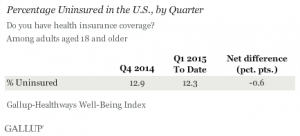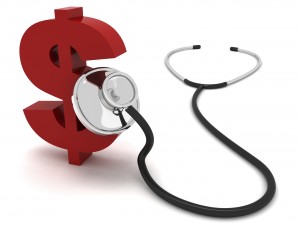 (A version of this Health Alert was published by Forbes.)
(A version of this Health Alert was published by Forbes.)
The Centers for Disease Control and Prevention’s National Center for Health Statistics conducts thorough research on health insurance coverage. Recently published early results of the latest National Health Interview Survey have been misrepresented in the media to show that Obamacare is reducing the number of uninsured Americans, and that the number of people having trouble paying for health care has dropped as a result.
Actually, this is not the case. The data show some factor other than Obamacare has caused the survey’s respondents to state that they are having less trouble paying medical bills than in previous years. We know this because those who remained uninsured improved their ability to pay medical bills more than those who got coverage through Obamacare.
Only 45 million Americans under 65 years old reported they were in families with problems paying medical bills in 2015. In 2011, the number was 57 million. That drop of 12 million corresponds with a significant increase in health insurance coverage. The number without insurance dropped by 18 million, from 46 million to 28 million, while the population increased by about three million.
So, it looks like two thirds of the 18 million people insured after Obamacare took hold have no more worries about medical bills. Hooray for Obamacare, right? Not at all. In fact, it is those who remained uninsured who account for the biggest share of the decrease in the number of Americans with troubles paying medical bills.
Read More » »
 The special election for Georgia’s Sixth District to fill the seat vacated by Secretary Price was heated. Jon Ossoff was the Democrat who ran for the seat with considerable outside support. He lost, nonetheless. A precinct captain supposedly complained that many of Jon Ossoff’s potential voters were hard to reach because they live with their parents. Democrats purportedly spent $200 per democratic vote, but I guess it wasn’t enough.
The special election for Georgia’s Sixth District to fill the seat vacated by Secretary Price was heated. Jon Ossoff was the Democrat who ran for the seat with considerable outside support. He lost, nonetheless. A precinct captain supposedly complained that many of Jon Ossoff’s potential voters were hard to reach because they live with their parents. Democrats purportedly spent $200 per democratic vote, but I guess it wasn’t enough.





